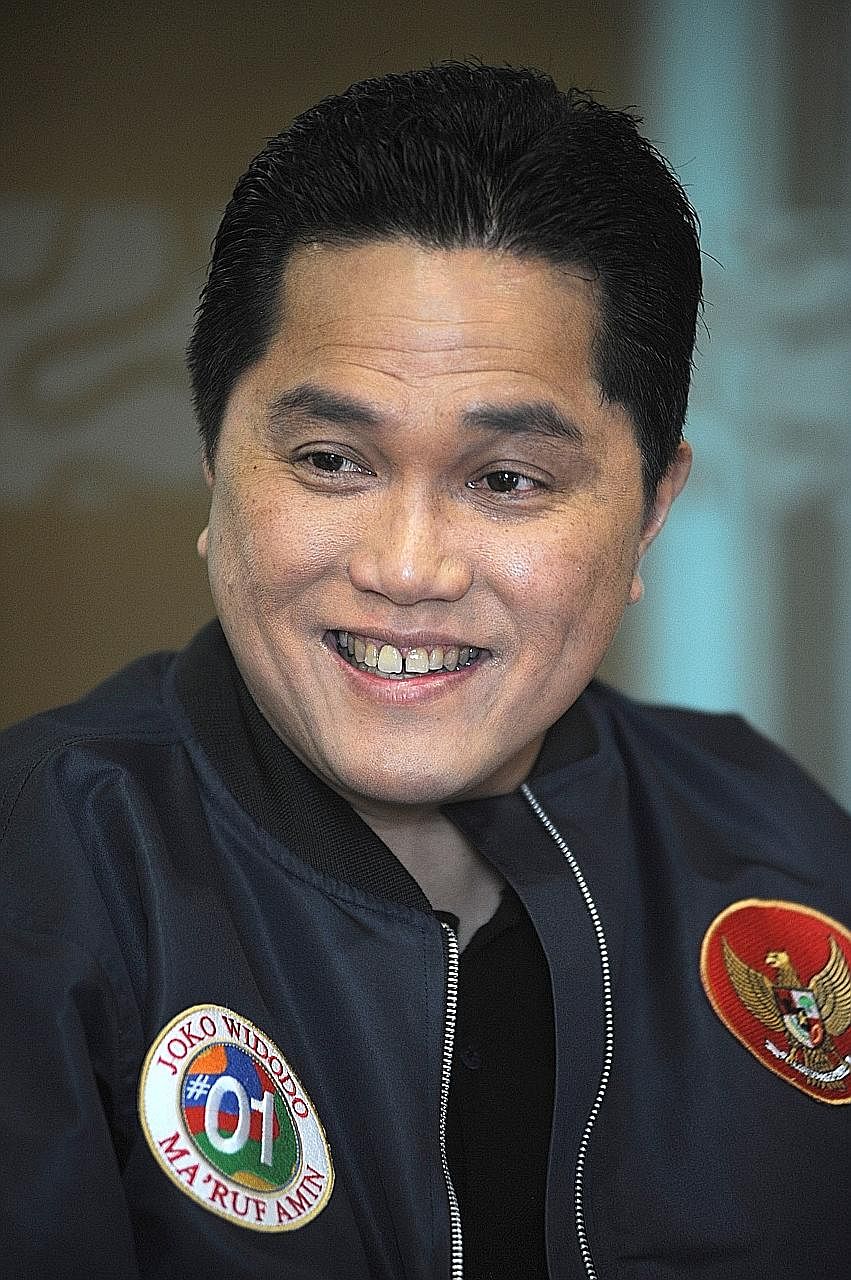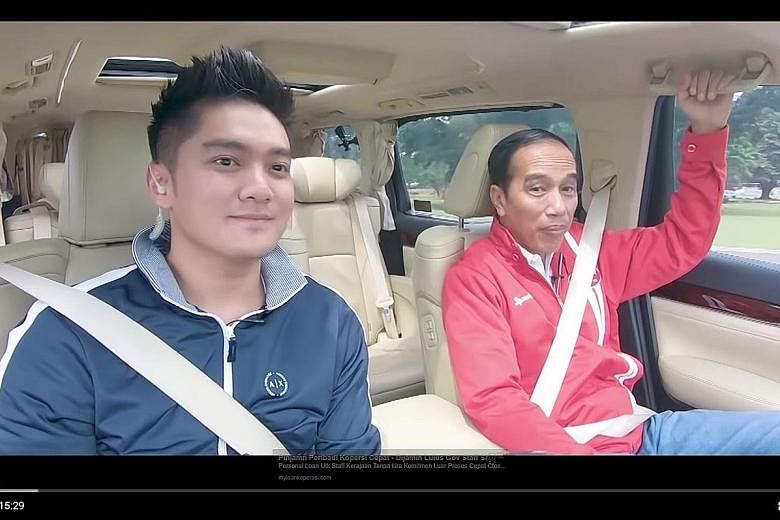Before any of the candidates had said a word at the first presidential debate in January, Mr Erick Thohir's work was already on display.
After the camera lingered on each of the presidential and vice-presidential tickets, it moved on to their supporters. While those cheering for challenger Prabowo Subianto and his vice-presidential candidate Sandi Uno were a clash of traditional batik and plain business shirts, backers of the incumbent president, Mr Joko Widodo, and his No. 2, the cleric Ma'ruf Amin, struck a more disciplined look.
They were decked out in dark bomber jackets emblazoned not only with the logo of the Joko-Amin ticket, but also with the state crest featuring the mythical garuda.
"We are trying to be consistent. We don't want to be in the situation where we are sending the wrong message," said Mr Thohir, 48, who is heading Mr Joko's campaign for re-election.
Six months after delivering Jakarta's successful Asian Games, Mr Thohir's new mission is to help Mr Joko reach a vast and diverse electorate at a time when the country has become more religiously conservative and as the spread of smartphones and social media has weaponised fake news.
Mr Thohir's strategy? Relentless consistency: highlighting Mr Joko's track record as a hardworking reformer who has brought infrastructure and services to the poor since his days as mayor of Solo in 2005.

"From Solo to Jakarta, he has been consistent," Mr Thohir said.
"This has been his life. We don't want to change his profile now."
At every opportunity, the campaign touts the government's infrastructure programme: 12 new airports and more than 300 new ports. By the end of the year, the country will have more than 1,800km of toll roads compared with barely 200km when he moved into the Istana Merdeka in 2014.
Under his watch, 100 million Indonesians have access to the country's generous health insurance and 20 million poor students have money for books and uniforms.
A second Joko administration would build on this, Mr Thohir said, with offers of free tertiary education for talented poor students and investments in communications infrastructure.
Mr Joko is eager to build on the country's top crop of tech start-ups such as ride-hailing app Go-Jek and e-commerce platform Tokopedia, which became successful during his first term in office.
These so-called unicorns have a valuation of at least US$1 billion (S$1.35 billion). More such start-ups are expected to follow this year.
Mr Prabowo has stumbled on the term "unicorns". At the second live debate between him and President Joko last month, the 67-year-old former general referred to the tech companies as "online things".
"That response helped show undecided young people the quality of the leadership of each candidate and how they understand the needs of the people," Mr Thohir said.
With almost 60 per cent of the 260 million population under age 35, Mr Joko has diligently courted the millennial vote.
A January video featuring him and his grandson taking a drive around the grounds of the Bogor palace with popular YouTuber Boy William clocked nearly seven million views. His Twitter following numbers nearly 11 million - triple Mr Prabowo's.
But what Mr Prabowo's online supporters lack in numbers, they make up for in fervour.
Mr Joko's party, the Indonesian Democratic Party of Struggle, was forced to apologise after videos emerged on YouTube last month showing one of its parliamentary candidates appearing to dance with constituents on disused prayer rugs in the conservative province of West Java.
"The mainstream media is inclined towards Jokowi, but Prabowo's social-media allies can be very militant, which gives him an advantage," said Dr Ariel Heryanto, an Indonesia studies professor at Monash University, referring to Mr Joko by his popular moniker.
Driving the resentment among conservatives is Mr Joko's July 2017 decision to ban the hardline group, Hizbut Tahrir Indonesia, which wants to replace the government with a caliphate.
Mr Joko's choice of Dr Ma'ruf may go some way towards winning over religious conservatives, Mr Thohir said. Dr Ma'ruf testified against former Jakarta governor and Joko ally Basuki Tjahaja Purnama at his blasphemy trial in 2017. Mr Basuki, a reform-minded ethnic Chinese Christian, is a bogeyman of conservatives here. He was released from prison in January after serving 19 months for insulting Islam.
Mr Thohir, a Muslim, said Dr Ma'ruf may be a moderating influence on conservatives.
"The challenge Indonesia is facing is that it's become a very conservative country," Mr Thohir said.
"The profile of Pak Ma'ruf is good for Indonesia... He can ensure the stability of Islam."
But some analysts warn that Mr Joko's move to have Dr Ma'ruf as his running mate could backfire as the vice-presidential candidate may be inclined to make the government more conservative.
No matter what happens at the elections next month, Mr Thohir will return to the private sector.
In the meantime, his energies are directed on sending the forward-thinking President back to office.
"We need a bigger dream, a bigger aspiration," Mr Thohir said. "That's why I like Jokowi and (why) I want him to win."


